The AIVP World Cities and Ports Conference is the international meeting place for port cities to share their knowledge, to promote the projects implemented, to establish international cooperation links, to take up together the challenges of the sustainable port city and to make their points of view known to the international organisations.
For all the members, they are the occasion to confront their opinions around round tables centred on the objectives of the AIVP 2030 Agenda. The conviviality of the AIVP network, maintained since its creation, contributes to the transparency and richness of the debates, creating a unique meeting moment which makes our difference.
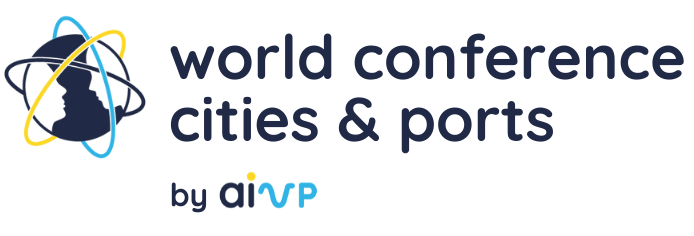
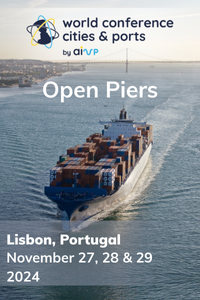
Lisbon 2024, Portugal
The 19th AIVP Conference in Lisbon (Nov 27-29, 2024) focused on “Open Piers,” exploring the evolving relationship between port cities and the planet. Key topics included the reopening of piers, the impact of climate change and geopolitical tensions, energy transition, the blue economy, and innovative governance models. The conference examined how port cities could integrate large activities like cruises while fostering stronger citizen connections.
Our partner: Porto de Lisboa
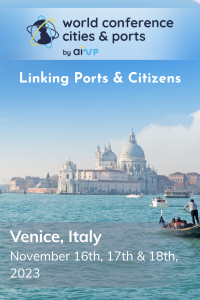
Venice 2023, Italy
The 18th AIVP Conference, held in Venice from November 16 to 18, 2023, focused on “Linking Ports and Citizens.” It highlighted the importance of citizen dialogue for sustainable port development, addressing key issues such as energy transition, climate change, tourism, and port-city resilience. Venice served as a symbolic case, illustrating the challenges and solutions at the port-city interface.
Our partner: North Adriatic Port Authority of Venice
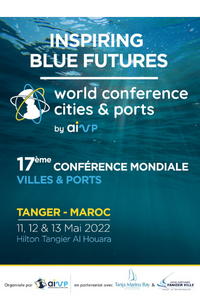
Tangier 2022, Morocco
After an absence of 4 years due to the pandemic, 350 participants attend the 17th World Conference Ports and Cities, around the theme “Inspiring Blue Futures”. In Tangiers, the members of the AIVP, the stakeholders of the port city, are exchanging ideas on the projects already implemented in the domains of the blue economy. They are observing how the Port City territories are adapting to climate change, and taking up new challenges such as quality food for all. They highlight innovation and decipher how the port cities are preparing to become the future hubs of the ocean economy.
Our partners: Port of Tangier City; SMIT, National Ports Agency, Northern Region
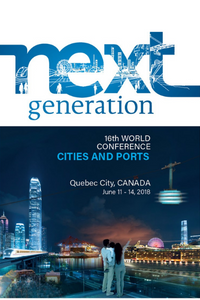
Quebec 2018, Canada
Addressing the 17 UN Sustainable Development Goals, the 16th World Conference Ports and Cities is placed under the theme “Next Generation”, questioning the aspirations of the citizens of port cities. On this occasion, the AIVP adopted its Agenda 2030, drawn up in collaboration with UN-Habitat and incarnation of the 17 SDGs for cities and ports. Its ratification one year later was officialised in Riga (Latvia). The Agenda 2030, available for consultation on our site, is today the thematic backbone of the work of AIVP.
Our partners: Port of Quebec
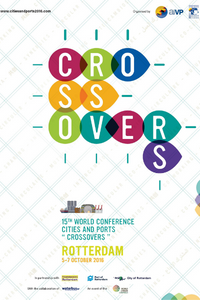
Rotterdam 2016, Netherlands
“Crossovers” is the central topic of the 15th World Conference Ports and Cities. In the heart of the innovation district of the biggest port in Europe, the participants are imagining a port city turned towards renewable energies and the circular economy, creative in terms of mobility for individuals as well as for freight, pleasant to live in in an urban framework in constant adaptation, in connection with its citizens. Technological changes, societal evolutions, citizen implications, emergence of collaborative practices, environmental, local and global challenges, it is at the crossroads of these multiple challenges that the AIVP continues to federate the port cities of the world.
Our partners : City of Rotterdam, Port of Rotterdam and Stadshavens Rotterdam
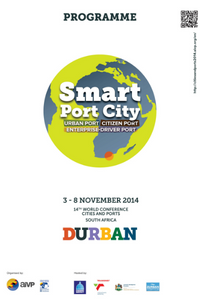
Durban 2014, South Africa
During this 14th World Conference Ports and Cities, the ports and port cities are seeking to innovate even more to build a port which is at the same time urban, citizen and entrepreneurial, bringing out for the first time the leitmotiv “Smart Port City”. Under the combined effect of the economic, ecological and resource crises, the port cities are producing innovatory strategies integrating renewable energy production, tourist activities and environmental management. These new challenges are making the control of urban port territories characterised by the multiplicity of interfaces and uses even more complex. Becoming “Smarter”, in the interest of all, is becoming more necessary than ever. Becoming “Smart” means better managing the flows of values, energy, data and people, while remaining proactive for sustainable development.
Our partners: City of Durban, Port National Authority
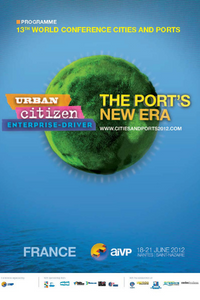
Nantes / Saint-Nazaire 2012, France
Urban, Citizen, Entrepreneur, this is how the members characterise the new time of the port, during the 13th World Conference Ports and Cities. The context of the still recent economic crisis of 2008, then the rarefaction of natural resources, the evolution of the climate, the energy problem, the emergence of new economic powers, are facts which are brutally inscribed in the economic, social and environmental realities of port cities. The need to associate for the development of both technical and political innovations, the need to make the time of local projects coincide with the time of global changes, is more and more urgent. The AIVP and the port cities continue to take up the challenges of the moment.
Our partners : Port of Nantes Saint-Nazaire, City of Saint Nazaire
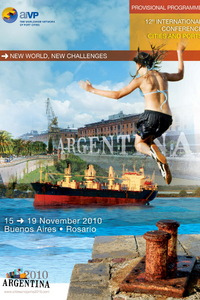
Buenos Aires and Rosario 2010, Argentina
New World, New Challenges, such is the course set for the 12th World Conference Ports and Cities organised in a new context; a consequence of the World Climate Conference of Copenhagen, held one year earlier, which testified to the extremely strong expectations of our societies to achieve a new model of growth preserving the future. Anticipating the strategies and innovations to be implemented for sustainable development projects is more than ever the role of the AIVP, which is now extending the network’s reflections around these issues. Directly exposed to the risks of crises whether ecological, climatic, financial or economic, the port cities are imagining together their common future.
Our partners : General Administration of Ports, Port of Buenos Aires, Port of Rosario, Porto Madero.
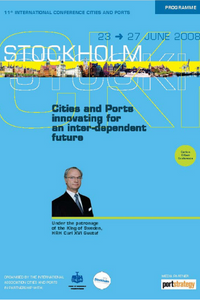
Stockholm 2008, Sweden
Under the high patronage of H.M. the King of Sweden, Carl XVI Gustaf, the port cities gathered for the 11th World Conference Ports and Cities, are confronting the problem of sustainable development in a natural maritime, fluvial or estuary environment which is still very sensitive. Together, they are facing a double global and local challenge. Global because of their commercial and industrial activities in a highly competitive context, local because they have to organise their territory and harmonise their port competitiveness strategies with the neighbouring urban area.
Our partner : Ports of Stockholm
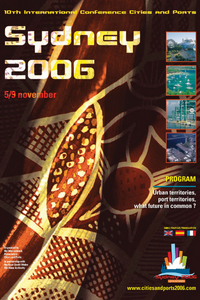
Sydney 2006, Australia
As the association celebrates its 18th anniversary, the network is meeting for the 10th World Conference Ports and Cities in order to tackle the central theme of the AIVP: the common future of the territories of cities and the territories of ports. Extension or relocation of port functions on the one hand, recomposition of the central sectors of the city around the historic quays on the other hand, rare are the port cities which are not already engaged in a process of urban redevelopment around the waterfront.
Our partners : Port Authority of New South Wales
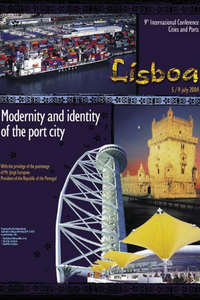
Lisbon 2004, Portugal
The 9th World Conference Ports and Cities brings together the AIVP network around the question of modernity and identity in the port city, two thematic axes often used as spearheads by the port cities of the whole world. Their modernity is expressed through their need to integrate into the world networks to translate the political, economic and social choices made in terms of infrastructures, equipment and management policy. The question of identity and respect for landmarks, a crucial point in a city-port environment so prone to modernisation, is a response to this. The enhancement of the heritage and the promotion of the city’s own values are two of the answers given by the AIVP.
Our partners : Metropolitan Area of Lisbon
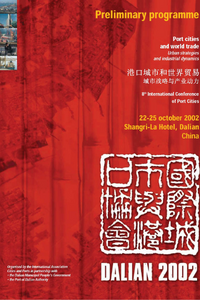
Dalian 2002, China
The 8th World Conference Ports and Cities has the vocation of engaging in exchanges around a reflection which will prove fundamental for the future of port cities: their sustainable development in the context of a globalisation which is accelerating more and more. In order to better apprehend all the economic, social and environmental parameters for an industrial dynamic and better thought out urban strategies, the port cities are focusing on the notion of sharing good practices so dear to the AIVP.
Our partners : Municipality and Port of Dalian
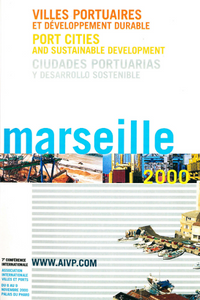
Marseille 2000, France
Twelve years after the launch conference in Le Havre, the AIVP network is back in France, more precisely in Marseille, on the occasion of the 7th World Conference Ports and Cities. In the Phocaean city, one of the founding port cities of the Association, the participants are drawing the lines of a wide consensus on the importance to be given to the environmental question. The debates notably concern the first environmental management systems set up in the ports as well as the potential of intermodality and of maritime and river transport as cleaner modes of transport.
Our partners: City and Port of Marseille
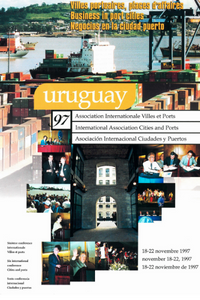
Montevideo 1997, Uruguay
During the 6th World Conference Ports and Cities, the port cities are drawing up a report on the expectations and strategies developed by the economic stakeholders who choose to set up in port cities. The mutations of the port tool enable a new utilisation of the city – port interface, a renewed advantage for port cities which are positioning themselves as the real nodal point of the production circuits. Three main axes guide the work: the return of the city to its quays, the conditions of success for undertaking in the port city, and the case of Mercosur as a mobilising initiative. In the post-conference session, the participants will discover the urban planning project Puerto Madero in Buenos Aires (Argentina), an operation for the urban reconquest of the oldest port basins situated in the heart of the city.
Our partners: National Ports Administration (Uruguay), Puerto Madero (Argentina)
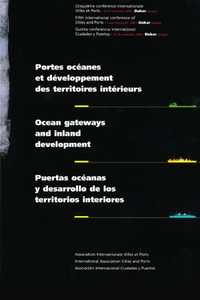
Dakar 1995, Senegal
On the occasion of the 5th World Conference Ports and Cities, the port cities of the world are meeting for the first time in Africa. They are tackling the question of ocean gateways and the development of inland territories. They are questioning the processes of territorial development in order to determine how the port community can respond in a more coherent manner to the economic, social and environmental challenges that they face.
Our partners: City and Port of Dakar
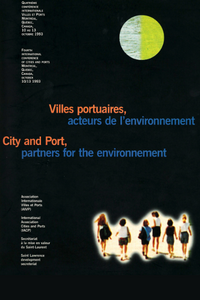
Montreal 1993, Canada
At the opening of the 4th World Conference Ports and Cities, John Ciaccia, Minister of International Affairs of Canada, explains that this meeting is organised “in order to focus on current international issues […] so as to enable new initiatives aimed at the harmonious development of cities and ports whilst respecting public expectations and environmental imperatives”. At the end of the event, the Charter of Cities and Ports for the Environment will be adopted, placing the AIVP as a precursor organisation on both environmental and citizen consultation issues, only one year after the Rio “Planet Earth” Summit.
Our partners: St. Lawrence Development Secretariat, Port of Montreal
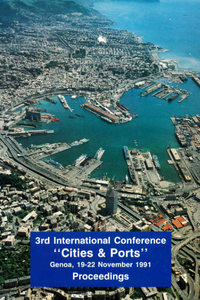
Genoa 1991, Italy
The 3rd International Congress on Cities and Ports marked a turning point for the AIVP, bringing together for the first time port cities from 5 continents. In the Ligurian capital, the debates concentrated on the question of city-port complementarity for a more efficient economic development. The already emerging question of the “waterfront” as a “solution to the new economic orientations of port cities” or as an indispensable tool for the “rediscovered seduction of the port city” is raised. This is the first step that will later enable the emergence of the “Working Waterfront” concept.
Our partner : Port of Genoa
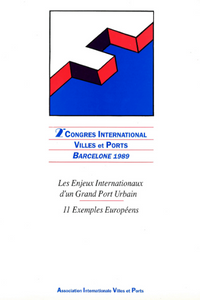
Barcelona 1989, Spain
In 1989, following the First Cities and Ports Forum, the International Association of Cities and Ports was founded in order to perpetuate an initiative and a new vision: to bring together all the stakeholders of port cities for mutual progress. In the wake of this, the Second City and Port Congress is organised, the first for the AIVP as an international network. The objective is to take stock of the projects developed in the big Ports and Cities of the world, extending the initiative undertaken in Le Havre one year earlier.
Our partner : Port of Barcelona
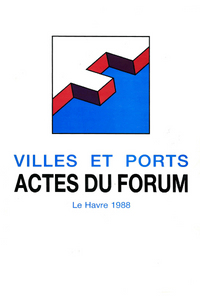
Le Havre 1988, France
The end of the 1980s marked a complete change in City-Port relations. Port activities are progressively moving away from urban centres, notably due to the development of containerisation. It is therefore necessary to envisage the renewal and revitalisation of old port areas that have become obsolete. All this requires new methods and new instruments of intervention in order to achieve an integration between port and urban areas. The First Cities and Ports Forum provides the ideal framework to debate these new challenges with all the stakeholders of the City-Port ecosystem.
Our partners : Department of Seine Maritime, Haute Normandie Region.
